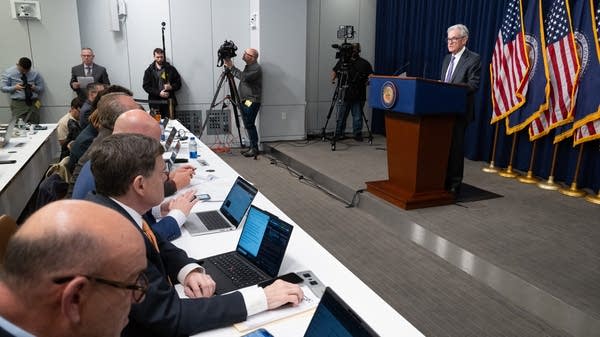Why a new Texas law worries anime and manga fans in the state
A new law in Texas is designed to criminalize AI-generated child porn, but free speech advocates say the language could affect some anime and manga content.

CONTENT WARNING: This story contains mention of sexualized images of children.
As artificial intelligence tools have rapidly improved in recent years, so have the quality and realistic nature of the images and videos they can be used to generate. But child protection advocates warn those tools are also being used in criminal or dangerous ways — to create child pornography. Texas just put a new law on the books aimed at criminalizing the use of AI tools in this way. But a potential side effect of this attempt to protect Texas kids has some free speech advocates and Texas businesses worried about the impact.
“(Texas Senate Bill 20) prohibits the possession or access or creation of essentially, child pornography, but that also includes images created by AI or computers or even cartoon images,” said Steven Collis, who teaches first amendment law at the University of Texas at Austin. The bill, which Governor Greg Abbott signed into law over the weekend, makes such an offense a state felony.
“That reference to a cartoon or animation is what got a lot of people in the comics community concerned,” said Jeff Trexler, interim director of the Comic Book Legal Defense Fund. “Specifically in anime and manga, because they've often been targeted for their, for some mangas and some animals, representations of characters that appear to be minors, often not minors, but have that appearance of minors.”
Anime and manga are Japanese or Japanese-inspired cartoons and comics, which can sometimes include, for example, adult characters with petite bodies and big, child-like eyes, or fantasy stories featuring a thousand-year-old demon lord in the body of a 10-year-old.
“One of the things that's really tricky about manga and anime,” said manga editor, researcher, and journalist Debora Aoki, “is that ... it comes from a different cultural context. It comes from a context where certain degrees of nudity is not considered sexual, per se.”
She gave the example of a common scene in anime and manga: visits to public bath houses.
“Public bathing, shared bathing, family bathing, is a cultural thing in Japan, it's no big deal,” she said. “But in America, as soon as you see any kind of nudity ... people get very worried.”
But supporters of the law say some of the more adult-themed anime and manga can cross the line. The vast majority doesn’t — and it's certainly not among the inventory that's stocked in a typical comics store. But some books and shows do include sexualized depictions of pre-teens. And — like any other medium — some content, known as hentai, is pornographic.
The Comic Book Legal Defense Fund’s Jeff Trexler worries that people will lump all anime and manga content in with the more adult content, and retailers will feel pressure under Texas’ new law to change their inventory.
“It's the very definition of a chilling effect for people saying, ‘Well, you know what, this stuff is too risky to stock,’” said Trexler. “We don't want people calling us child pornographers in the local Next[door] group. We don't want people complaining about us to the local sheriff. We don't want to risk getting arrested for selling this stuff, no matter how innocent it is.”
It’s a risk bookstore owners are already weighing. Benjamin Napier owns and operates a brick and mortar Mansfield Comics and Manga in Mansfield, Texas, where he said he gets about 15% to 20% of his sales from manga. He said he was pretty alarmed when he first heard the Texas state legislature was considering the bill.
“But I kind of dismissed it at first as just being kind of ridiculous and kind of frivolous,” he said, “You know, just kind of another sort of misguided puritanical onslaught.”
Now it’s the law, set to kick in September 1, and Napier said he’s “basically just waiting for the impact of it at this point.”
Regardless, he said he doesn’t plan to change any of his inventory, much of which he said already carries ratings to indicate age-appropriateness.
“I don't think that I should cow to the puritanical regime of, you know, (Texas Lieutenant Governor) Dan Patrick, and just say, you know, ‘Oh, I better change my whole business, and better change all my inventory for this.’”
Neither the bill’s sponsor nor the Texas governor’s office responded to Marketplace’s requests for comment on this story and the potential impact of the law on Texas businesses. Law professor Steven Collis at UT Austin said the industry’s concerns are valid, “but I also think that it's entirely plausible that this law could get rolled out and applied in a way that will find their fears unfounded at the end of the day.”
Collis said the law has been carefully drafted to likely pass muster under the First Amendment, and he thinks Texas authorities will want to avoid overreach — such as by going after all manga and anime — that could run the risk that a judge rules the law doesn’t hold up to a free speech challenge.













